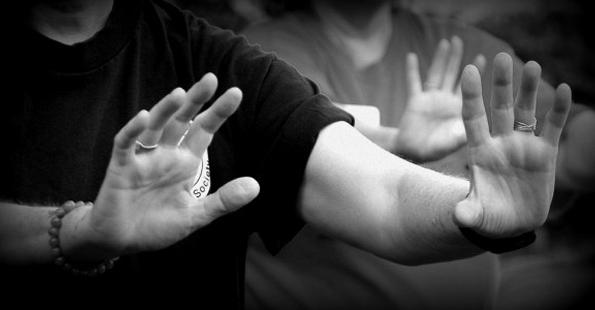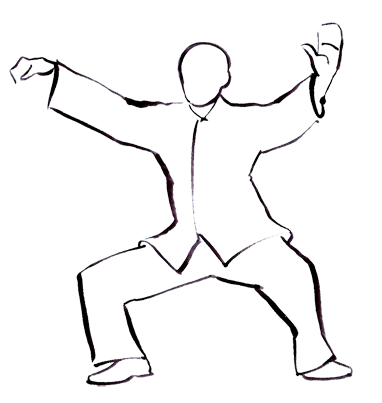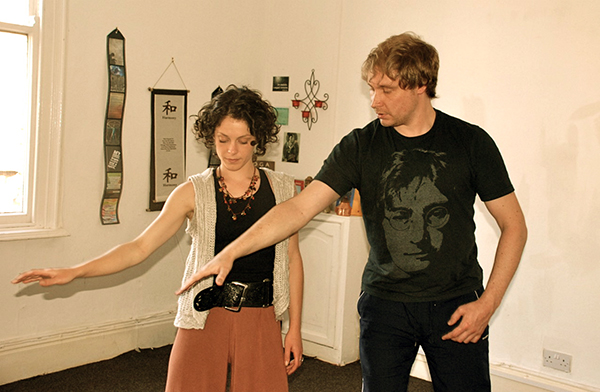
A few weeks ago I was inspired to create an online petition calling for Tai chi and Qigong to be made freely available to all via the NHS (National Health Service in the UK). That inspiration came in the form of a similar petition which I had seen that was calling for therapeutic bodywork to be made available to all regardless of their assets or income. I must admit, it was a fairly emotionally driven and spontaneous act, but with a month to reflect and having a look at what, if anything, is being done in this regard I have this to offer:
The idea behind the Therapeutic Bodywork Petition that resonated so much with me is one that is at the very heart of eastern medicine – disease prevention, treatment before being sick, and restoration of balance. Anxiety is truly the disease of our modern age, along with its opposite and counterpart depression. Speaking as someone who has suffered from both, I can attest that they are a product of a loss of balance in life. In an ever increasingly fast paced and changing world who among us isn’t feeling pushed, pulled, frayed, confused, agitated, and even hopeless at times ?
One result of this emotional and mental imbalance is that the stress and tension is stored in our physical bodies, particularly our upper bodies. Hence we are a nation of bad necks, bad backs, sore stiff shoulders, trapped nerves, tension headaches and migraines, etc. etc. etc. This tension can set much like wet cement sets, becoming deeply ingrained, layer after layer. Bodywork and massage is a simple, cost effective, and compassionate treatment that can release some of this tension when a person is feeling they are skating close to the edge, that they need “something”, and it’s nice when that something doesn’t always have to be pharmaceutical drugs!
 So where does Tai chi and Qigong fit in? Two broad groups seem to be catered for at present – The first is the enthusiasts, of course I count myself amongst them.
So where does Tai chi and Qigong fit in? Two broad groups seem to be catered for at present – The first is the enthusiasts, of course I count myself amongst them.
Most of us have a deep interest in personal development, self-awareness and integration, are fascinated by Chinese philosophy, and many of us may even practice the martial aspects of Tai chi .
The second group of people are those with chronic illness of all kinds and descriptions who are desperate for some relief, and the elderly who have heard Tai chi can regain range of movement and help with fall prevention. And it is truly great and encouraging to see that there are schools out there who are offering tuition and therapy via the NHS, for sufferers of chronic pain, such as this one based in Kent www.taichi.uk.com/nhs.html
The thing is though, Tai chi and Qigong are capable of so much more. And by so much more I mean a complete paradigm shift in the way we look at our health, our bodies, and our quality of life in the west.
So why Tai chi, why does it fit the bill? Because it is born from a complete system/philosophy/technology (Daoism), its origins can be traced back over 3000 years, and it has never fundamentally changed, only adapted to fit the times. As a side note the same ancient wisdom that gave birth to Tai chi also gave birth to the I ching, which pre-dated the use of the binary code powering all our computer technology today by a couple of thousand years.
Tai Chi works fundamentally with the breath, the body, and the mind. Imagine having the range of motion and soft spherical movement you had as an infant, as well as the boundless energy and effortless full body breathing… imagine having it back! Imagine having a relaxed and present mind capable of applying itself without distraction and able to switch off easily at the end of the day!
This is the direction that a Tai chi practitioner is softly, gently, yet persistently heading in.
What if Tai chi and Qigong were made available to all with an interest, so the unemployed or people with low incomes can attend classes? This would simply mean fairly low cost subsidies and would also support Tai chi instructors. Remember, Tai chi requires no special equipment and can be practiced anywhere.
It would be great to see the leading Tai chi authorities and experts combine to create a basic syllabus. Teachers like Bruce Frantzis, who studied for years in China, are currently going to extraordinary lengths to ensure that lineages and the entirety of their knowledge are recorded, and that they survive the cultural transition intact.
 For us now it is a matter of preservation and accessibility, not everyone will want to train to the same level and all will have their own wants and needs. We just need to establish and preserve the download.
For us now it is a matter of preservation and accessibility, not everyone will want to train to the same level and all will have their own wants and needs. We just need to establish and preserve the download.
We need to bring these health arts to the masses. The current teachers and long term practitioners are the ones who can raise the overall standard and help to demystify the material.Eventually, as it’s obvious benefits emerge and grow on a greater scale, we can work to introduce it into schools.
Our aims are surely for the prevention of disease and illness, and active, pragmatic self-improvement education that isn’t vanity based or profit driven. The focus should be on learning how to feel, to get back in our bodies and be comfortable there, to calm the nervous system and smooth out emotions… and to make Tai chi and Qigong as ubiquitous as that other great China to UK export, the cup of tea.
Here is the petition:
http://www.gopetition.com/petitions/make-tai-chi-and-qigong-available-to-all-via-the-nhs.html

Leave a Reply